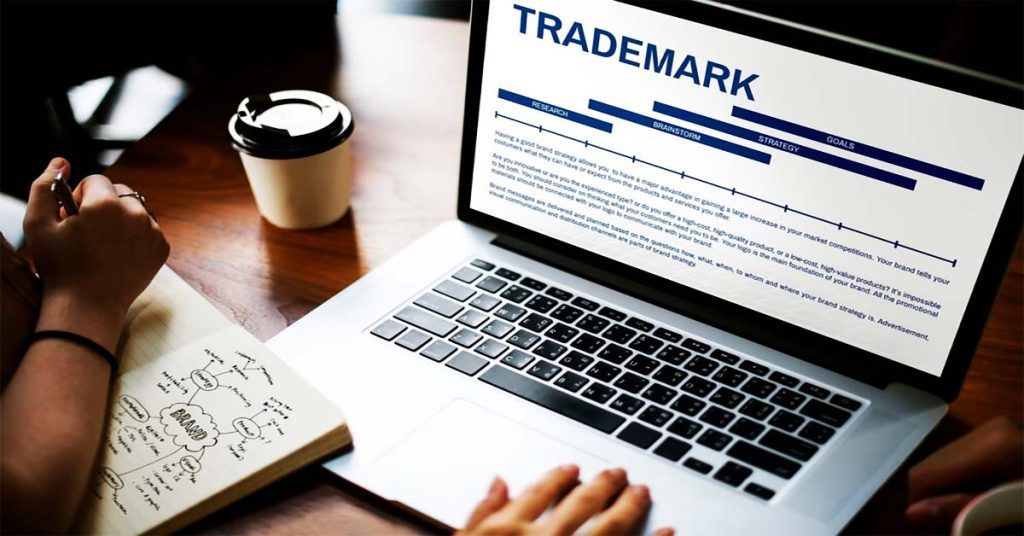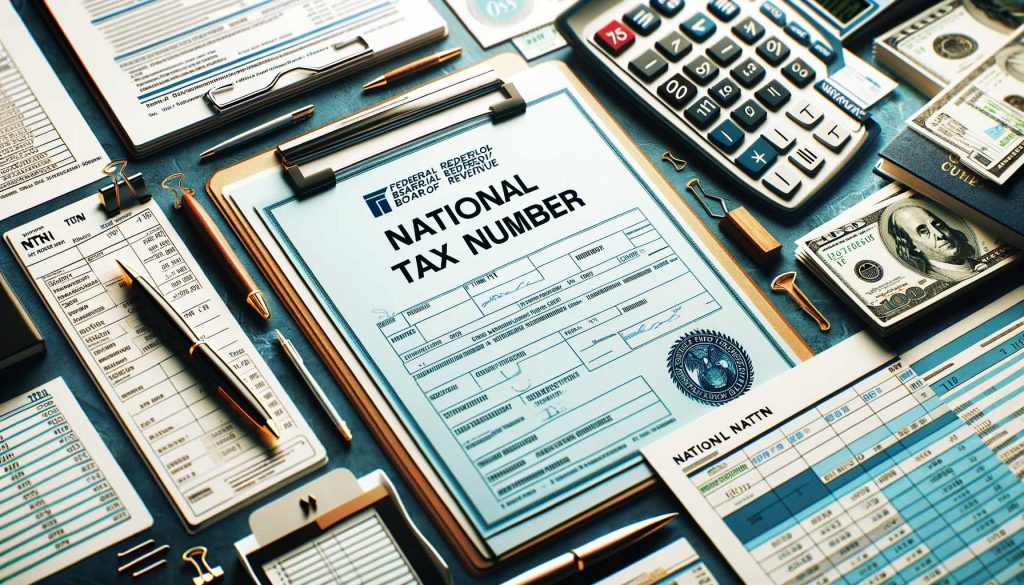A trademark is a distinctive symbol, word, phrase, logo, or combination of these elements used to identify and distinguish the goods or services of one party from those of others. It serves as a recognizable badge of origin and represents the reputation, quality, and identity of a brand or business. Trademarks are crucial for several reasons:
- Brand Recognition: Trademarks create a strong visual and emotional connection with customers. When people see a well-known trademark, they instantly associate it with a specific product or service, which builds brand recognition and loyalty.
- Protecting Intellectual Property: Trademarks are a form of intellectual property protection. They provide legal rights to the owner, preventing others from using a similar mark and capitalizing on the brand’s reputation. This protection is essential for preserving the uniqueness of a brand.
- Consumer Trust: A registered trademark conveys trust and reliability. Customers often choose products or services with a recognized trademark because they associate it with a consistent level of quality. This trust leads to customer loyalty and repeat business.
- Legal Recourse: Trademark registration provides a legal basis for challenging any unauthorized use of the mark. Infringement cases can be taken to court, and the trademark owner can seek damages, injunctions, and other legal remedies against those who violate their rights.
- Marketing and Advertising: Trademarks are valuable tools for marketing and advertising. They serve as a powerful marketing asset, helping businesses establish their presence in the market and stand out from competitors.
- Business Expansion: Trademarks are often assets that can be bought, sold, licensed, or used as collateral. This makes them valuable for business expansion, franchising, or partnerships.
- Global Protection: Many businesses aim to expand internationally. Trademarks can be registered in multiple countries, providing global protection for a brand and allowing it to grow without the risk of infringement in foreign markets.
- Preventing Confusion: Trademarks reduce consumer confusion. When goods or services carry the same trademark, customers know they come from the same source and meet the same quality standards.
- Longevity: Unlike patents and copyrights, which have limited durations, trademarks can be renewed indefinitely. This means that a well-protected trademark can continue to represent a brand for generations.
Ensuring your brand’s unique identity through trademark registration is just as essential as crafting a professional WordPress website. Both empower you to stand out in the digital world with confidence.
In summary, trademarks are vital for establishing brand identity, protecting intellectual property, building trust with consumers, and ensuring legal recourse against unauthorized use. They are a cornerstone of business success in a competitive marketplace.
Also read: Sales Tax Registration in Pakistan: A Step-by-Step Guide
Why Trademarks Matter
Trademarks matter for a multitude of compelling reasons, all of which contribute to their fundamental importance in the world of business and commerce. Here are some key reasons why trademarks matter:
- Distinct Identity: Trademarks are the face of a brand. They provide a unique and recognizable identity for products or services, setting them apart from competitors. This distinctiveness helps consumers make informed choices in a crowded marketplace.
- Brand Recognition: A well-established trademark fosters brand recognition. When customers see a familiar logo or symbol, they instantly connect it to the associated brand, creating a sense of trust and loyalty.
- Consumer Trust: Trademarks signify consistency and quality. They assure customers that a product or service bearing that trademark meets specific standards, leading to trust and confidence in the brand.
- Legal Protection: Trademarks offer legal protection against unauthorized use. They grant the owner exclusive rights to the mark and provide a legal basis for challenging anyone who tries to use a similar mark.
- Marketplace Advantage: Trademarks provide a competitive edge. They allow a brand to differentiate itself, even in crowded markets, and can be a significant factor in consumer purchasing decisions.
- Intellectual Property Protection: Trademarks are a form of intellectual property, safeguarding a brand’s unique identity. They join patents, copyrights, and trade secrets as a vital asset for businesses.
- Branding and Marketing: Trademarks are pivotal for branding and marketing strategies. They are powerful tools for conveying a brand’s message, values, and promises to the public.
- Business Expansion: Trademarks can be used to expand a brand’s presence. They can be licensed, franchised, or extended into new product lines, contributing to business growth and diversification.
- Global Reach: Trademarks can be registered internationally, ensuring that a brand’s protection extends across borders as it expands into new markets.
- Value and Asset: A well-established trademark can become a valuable business asset. It can be bought, sold, licensed, or used as collateral, adding to a brand’s overall worth.
- Longevity: Unlike patents and copyrights, which have limited durations, trademarks can be renewed indefinitely. This means that a strong trademark can continue to represent a brand for generations.
- Consumer Choice: Trademarks aid consumers in making informed choices. They simplify the decision-making process by signifying the brand’s origin and quality.
- Protection Against Infringement: Trademarks offer a legal basis for taking action against those who attempt to infringe upon a brand’s identity, reputation, and market share.
In conclusion, trademarks matter because they are the cornerstones of brand identity, consumer trust, and legal protection in the business world. They play a pivotal role in shaping the success and longevity of businesses, ensuring that consumers can make informed choices and trust the products and services they purchase.
Step-by-Step Guide to Trademark Registration in Pakistan
Now that we’ve explored the “why,” let’s dive into the “how” of trademark registration in Pakistan.
Step 1: Trademark Search
Before you start the formal process, conduct a trademark search. You want to ensure that your chosen trademark is unique and not already registered. To do this, download Form T.M 55 from the IPO’s website and fill it. Submit it at the IPO office along with a pay order of Rs. 1000 in the name of Director General IPO.
Step 2: Choose the Right Trademark Class
In Pakistan, trademark registration follows the International Classification of Goods and Services (Nice Classification). It consists of 45 classes. Select the class or classes that best describe the goods or services associated with your trademark. This step is crucial for effective protection.
Step 3: Gather Required Documents
You’ll need a set of documents for your trademark application:
- A completed TM-1 application form, available on the IPO-Pakistan website.
- A clear representation of the trademark in the required format. If your mark includes colors, it should be color printed.
- A power of attorney T.M 48 (if you’re filing through an agent).
- Details of the applicant, including name, address, and nationality.
Step 4: File the Trademark Application
You can file your application online or in person at the Trademarks Registry of IPO-Pakistan. Make sure all the information provided is accurate and complete to avoid complications down the road.
Step 5: Pay the Application Fees
Application fees can vary depending on factors such as the number of classes and the mode of filing. You can make the payment online or through a bank draft payable to the Registrar of Trademarks.
Step 6: Examination and Publication
After filing, your trademark application goes through a formal examination and substantive examination by the Trademarks Registry. If no objections or oppositions arise, your trademark will be published in the Trademarks Journal for two months. During this time, interested parties can oppose the registration.
Step 7: Registration and Issuance of Certificate
If no opposition is received within the specified period, your trademark will be registered, and a registration certificate will be issued. This certificate is valid for ten years from the application date, and it’s renewable indefinitely for successive ten-year periods.
Conclusion
Filing a trademark in Pakistan is a significant step towards securing your brand’s future. By following this step-by-step guide, you can navigate the process with confidence, protect your intellectual property, and ensure the long-term success of your business.
Remember, it’s always a good idea to consult with a trademark attorney or seek professional assistance for a smooth and successful trademark registration process.
By following these steps, you can confidently secure your brand’s future with a registered trademark in Pakistan.
Frequently Asked Questions:
How much does it cost to register a trademark in Pakistan?
It normally takes Rs. 3,000 for application submission of Trademark registration but the cost to register a trademark in Pakistan can vary depending on several factors, including the number of classes under which the trademark is being registered and whether you are using an attorney. Generally, there is an initial application fee that must be paid via pay order or bank draft. It’s advisable to consult the official fee schedule or contact a local attorney for the most accurate and up-to-date fee structure.
How can I register my trademark in Pakistan?
To register your trademark in Pakistan, you need to follow a multi-step process that includes conducting a trademark search, filing an application, undergoing scrutiny by the Registrar, and, if approved, getting your trademark published in the Trademark Journal. Detailed guidance on the process can be found on the Intellectual Property Organization of Pakistan’s website.
How do I get a registered trademark?
To obtain a registered trademark, you must submit a formal application that includes a representation of the trademark, details about your business, and the specific goods or services you wish to trademark. After the application is scrutinized and published without opposition, you will receive a certificate of registration. The entire process is outlined on the IPO Pakistan website.
How can I check my trademark in Pakistan?
You can check the status of your trademark in Pakistan by accessing the IPO Pakistan’s online database. This database allows you to search for existing trademarks to ensure that your proposed mark is unique and to check the status of your trademark application.
How can I trademark my name and logo in Pakistan?
To trademark your name and logo in Pakistan, you must file separate applications for each, ensuring that both meet the requirements for trademarking. The name and logo must be distinctive and not previously registered or in use. The process involves the same steps as registering any other trademark and can be initiated on the IPO Pakistan’s website.
How long does it take to register a trademark in Pakistan?
The registration process for a trademark in Pakistan typically takes about 18 months from the filing of the application to the issuance of the registration certificate, assuming there are no objections or oppositions.
How long does trademark registration last in Pakistan?
In Pakistan, a registered trademark is valid for 10 years from the date of application. It can be renewed indefinitely for successive terms of ten years each.
How much does it cost to renew a trademark in Pakistan?
The cost of renewing a trademark in Pakistan will depend on the number of classes and the late renewal fees if applicable. It’s best to refer to the IPO Pakistan’s fee schedule for the most current renewal fees.
What is the difference between copyright and trademark?
Copyright protects original works of authorship, such as books, music, and art, while a trademark protects words, phrases, symbols, and/or designs that identify the source of goods or services. Copyright automatically arises upon the creation of the work, whereas trademark protection requires registration. For a more comprehensive understanding, you can refer to the Copyright Alliance’s explanation.





